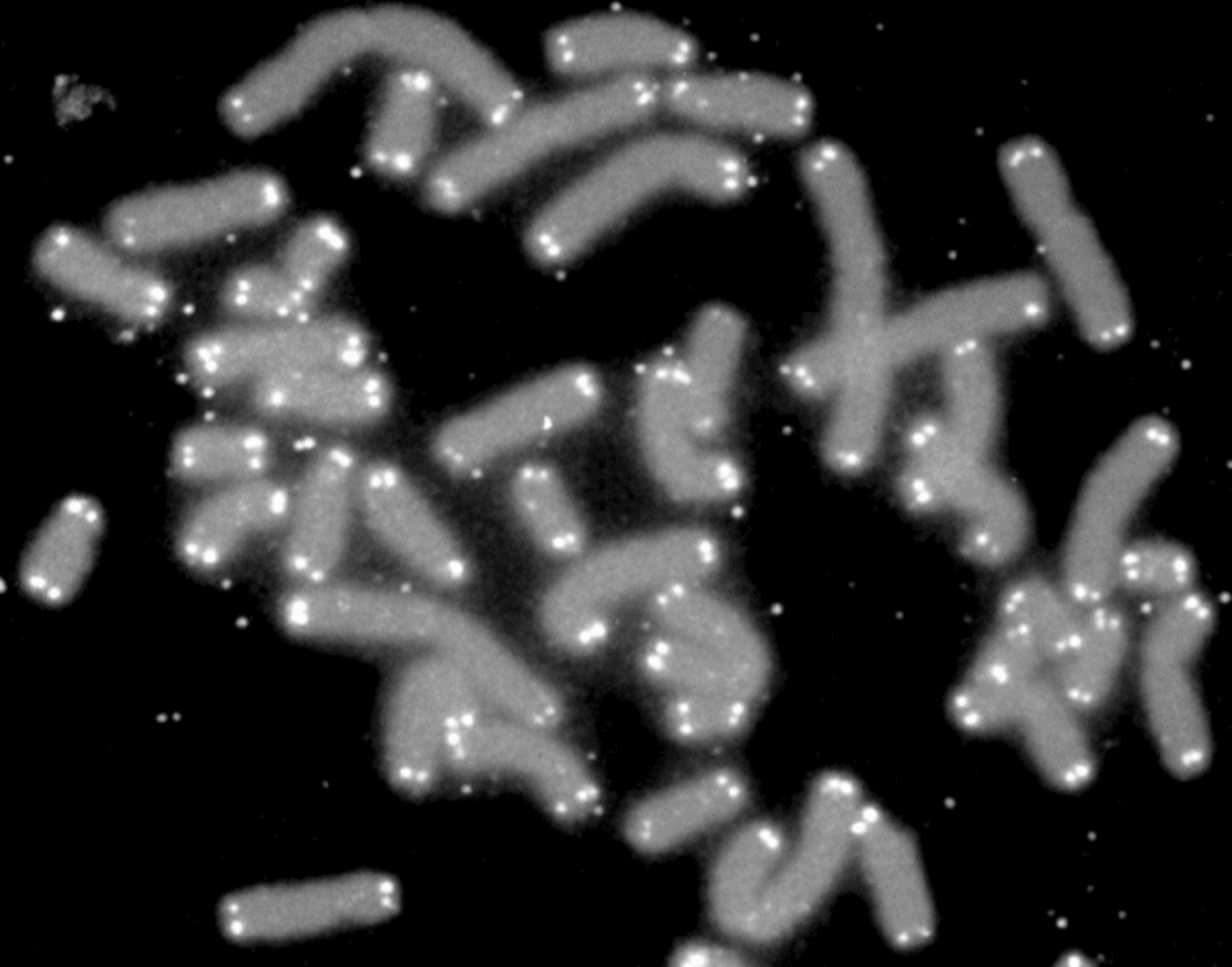Lifestyle changes, including a healthy diet, moderate exercise and stress management, reversed genetic markers of human ageing, a new study has  shown.
shown.
Thirty five older men were randomised to act either as controls (25 people) and were merely followed up, or were assigned to an intervention group (10) and participated in a programme of healthy, low-fat eating, regular stress reduction therapies and a daily 30-minute exercise regime.
The participants were followed over a 5 year period, after which the lengths of DNA structures called telomeres in their cells were measured and compared with similar measurements made when the patients first joined the study.
Telomeres are protective structures found at the ends of chromosomes. With time, and increasing numbers of cell divisions, the telomeres shorten, limiting the total number of times a cell can divide. As such, they provide an index of ageing and are a prognostic marker for risk of succumbing to various age-related diseases.
The length of telomeres is partly controlled by an enzyme called telomerase, which is able to reverse or slow some of the age-related erosion of these structures. In a previous study, Preventative Medicine Research Institute, California scientist Dean Ornish and his colleagues had shown that lifestyle changes similar to those outlined above increased the level of telomerase activity in patients' cells.
Whether this would translate into a long-term slowing of the rate of telomere erosion in these patients wasn't known, which is where the new study came in.
The results were dramatic. At the 5 year follow up, the ten patients in the intervention arm had telomeres that were, on average, longer than they had been at the start of the study.
Put another way, among the controls, 64% had telomeres that were shorter than when the study began compared with 30% of the intervention group.
The control group also had a four-fold higher drop in the levels of telomerase enzymes in their cells compared with the intervention group.
So, the lifestyle changes appeared to be slowing and even reversing the biochemical signs of ageing. Moreover, the better that subjects adhered to the prescribed healthy-living programme the stronger the benefit for their telomeres.
The researchers point out in their paper in The Lancet Oncology journal, where the work is published, that the mechanism underlying the observed effects isn't yet known, and that a much larger group of individuals should now be examined to confirm the findings. However, they point to results from other studies that show that severe or chronic stress does appear to accelerate biological ageing, and that this manifests as damage done preferentially to telomeres.
Thus, lifestyle changes designed to reduce psychological and chemical stress slows or reverses the process.










Comments
Add a comment